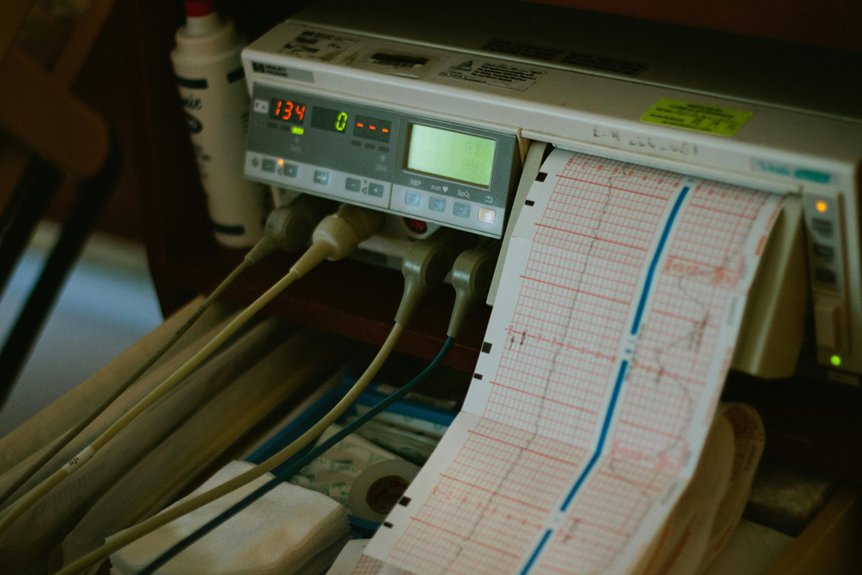A General Health Panel is more than just a routine blood test; it’s an essential tool for evaluating your overall well-being. It measures key health indicators like cholesterol, blood sugar, and liver function. Understanding these results can help you identify potential health risks early on. So, why should you consider getting one? The insights gained can lead to proactive lifestyle changes that support your long-term health. Let’s explore what a General Health Panel includes and how it can benefit you.
Key Takeaways
- A General Health Panel consists of comprehensive blood tests assessing cholesterol, blood sugar, liver, and kidney health.
- Regular screenings help catch potential health issues before they develop into serious conditions.
- Preparing for the panel includes fasting, reviewing medications, and staying hydrated for accurate results.
- Understanding test results is vital for making informed health decisions and identifying necessary lifestyle changes.
- Engaging in proactive healthcare and discussing findings with a provider promotes better overall health and well-being.
Understanding the Components of a General Health Panel
When you get a general health panel, you’re fundamentally looking at a thorough snapshot of your overall well-being.
This panel typically includes several blood tests that evaluate essential components like cholesterol levels, blood sugar, liver function, and kidney health. Each of these panel components plays an important role in evaluating your body’s systems.
For instance, cholesterol tests can indicate heart health, while blood sugar levels help identify diabetes risk. Understanding these components allows you to grasp your health status better and informs any necessary lifestyle changes or treatments.
Regularly reviewing these results can lead to more proactive health management.
Benefits of Regular Health Screenings
Regular health screenings offer invaluable insights into your well-being, helping you catch potential issues before they escalate.
By participating in these preventive care measures, you can identify early signs of chronic conditions like diabetes or hypertension. This proactive approach not only improves your chances of effective treatment but also promotes a healthier lifestyle.
Regular screenings empower you to make informed decisions about your health, ensuring you stay on track with necessary lifestyle changes or interventions.
Ultimately, these check-ups serve as a cornerstone for maintaining peak health and preventing serious complications down the line, making them essential for everyone.
How to Prepare for a General Health Panel
Preparing for a general health panel is essential for ensuring accurate results and a smooth experience. Here’s how you can get ready:
Preparing for a general health panel is crucial for accurate results and a seamless experience.
- Follow fasting requirements: Typically, fast for 8-12 hours before your test.
- Review medication considerations: Check with your doctor about any medications you should pause or continue.
- Stay hydrated: Drink water, unless instructed otherwise, to help with blood draws.
- Bring necessary documents: Have your ID and insurance information ready for a hassle-free check-in.
Interpreting Your Results: What They Mean
Understanding your test results is essential for making informed health decisions. Each result has significance, reflecting key health indicators like cholesterol levels, blood sugar, and liver function.
When you receive your results, look for values that fall outside the normal range, as these may signal potential health issues. It’s important to contemplate the context of your overall health and lifestyle. For instance, slightly elevated cholesterol mightn’t be alarming if you’re otherwise healthy.
Discuss your results with your healthcare provider to gain insights into what they mean for you, and how they can guide your future health management.
Making Informed Health Decisions Based on Your Panel
Interpreting your health panel results is just the first step; now it’s time to make informed health decisions based on that information.
By leveraging your personalized insights, you can engage in proactive healthcare. Here’s how to get started:
- Discuss your results with your healthcare provider.
- Identify lifestyle changes that can improve your health.
- Set specific health goals based on your panel findings.
- Schedule regular follow-ups to monitor progress.
Using your health panel data empowers you to take charge of your well-being and make choices that align with your health objectives.
Don’t hesitate to prioritize your health journey!
Conclusion
To sum up, a General Health Panel is an essential tool for monitoring your health and catching potential issues early. By understanding its components, benefits, and how to prepare, you can make the most of your screening. Interpreting your results empowers you to take charge of your health and make informed decisions. Don’t underestimate the importance of regular health check-ups—investing in your well-being today can lead to a healthier, happier future.




